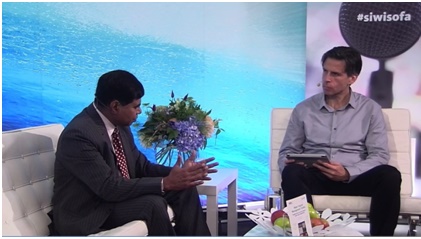Published: 12 November 2016
At the backdrop of widespread corruption and mal-governance across the sector, Transparency International Bangladesh (TIB), with the support of Water Integrity Network (WIN) of Berlin, formed Bangladesh Water Integrity Network (BAWIN) in 2011 to promote integrity as an essential part of the solution for more sustainability in the water sector. BAWIN is a multi-stakeholder network that includes civil society water sector institutions at national and sub-national level as well as committed individuals. BAWIN activities include but not limited to research, campaigns and advocacy to promote the engagement of various stakeholders. A key stakeholder of BAWIN, Khulna Water Supply and Sewerage Authority (KWASA) has been successfully applying the Integrity Management (IM) Toolbox in their organization since 2015. IM is a systematic, bottom-up approach to improve performance and efficiency through increased integrity.


 Meanwhile, Managing Director and Deputy Managing Director of KWASA recently attended the World Water Week 2016, hosted and organized by Stockholm International Water Institute (SIWI) from 28 August to 2 September 2016 and shared their experiences in applying the Integrity Management Toolbox. KWASA made major progress toward implementation and developed the integrity roadmap to guide the organization’s change process. During an interview with SIWI, KWASA Managing Director Mr. Abdullah mentioned some of the KWASA’s achievements after IM toolbox implementation in their organization. Earlier it used to take some 30 days to give water connection to a new customer, this has now been reduced to 20 days. KWASA also digitalized the billing system and introduced e-procurement system to scrap unethical practices and bring better financial sustainability for KWASA.
Meanwhile, Managing Director and Deputy Managing Director of KWASA recently attended the World Water Week 2016, hosted and organized by Stockholm International Water Institute (SIWI) from 28 August to 2 September 2016 and shared their experiences in applying the Integrity Management Toolbox. KWASA made major progress toward implementation and developed the integrity roadmap to guide the organization’s change process. During an interview with SIWI, KWASA Managing Director Mr. Abdullah mentioned some of the KWASA’s achievements after IM toolbox implementation in their organization. Earlier it used to take some 30 days to give water connection to a new customer, this has now been reduced to 20 days. KWASA also digitalized the billing system and introduced e-procurement system to scrap unethical practices and bring better financial sustainability for KWASA.




